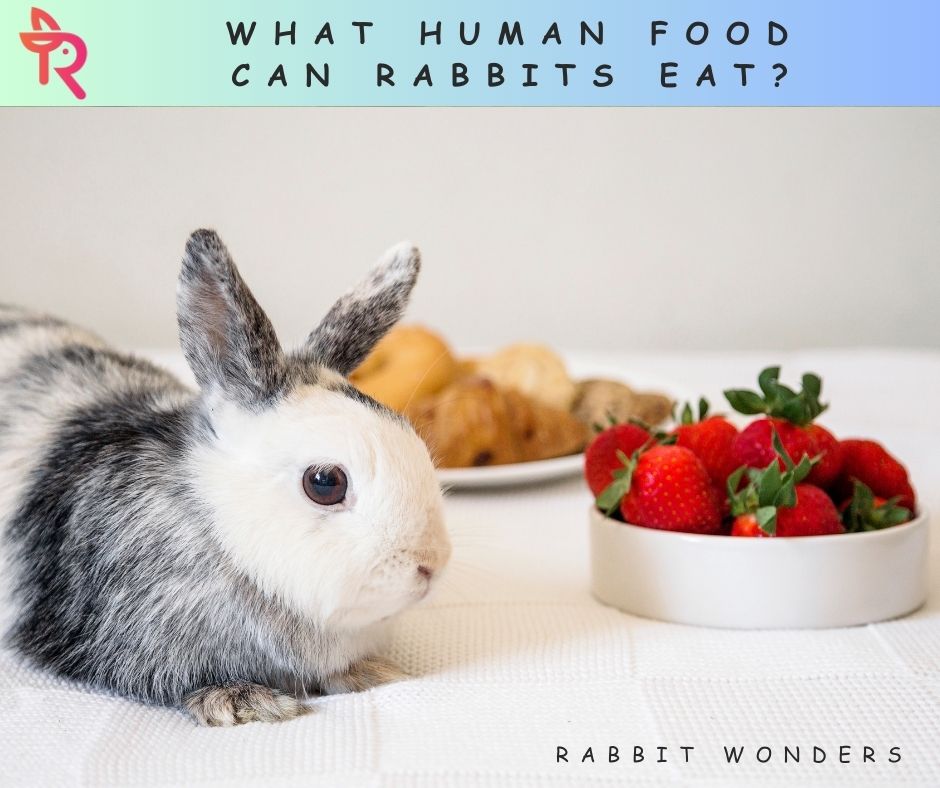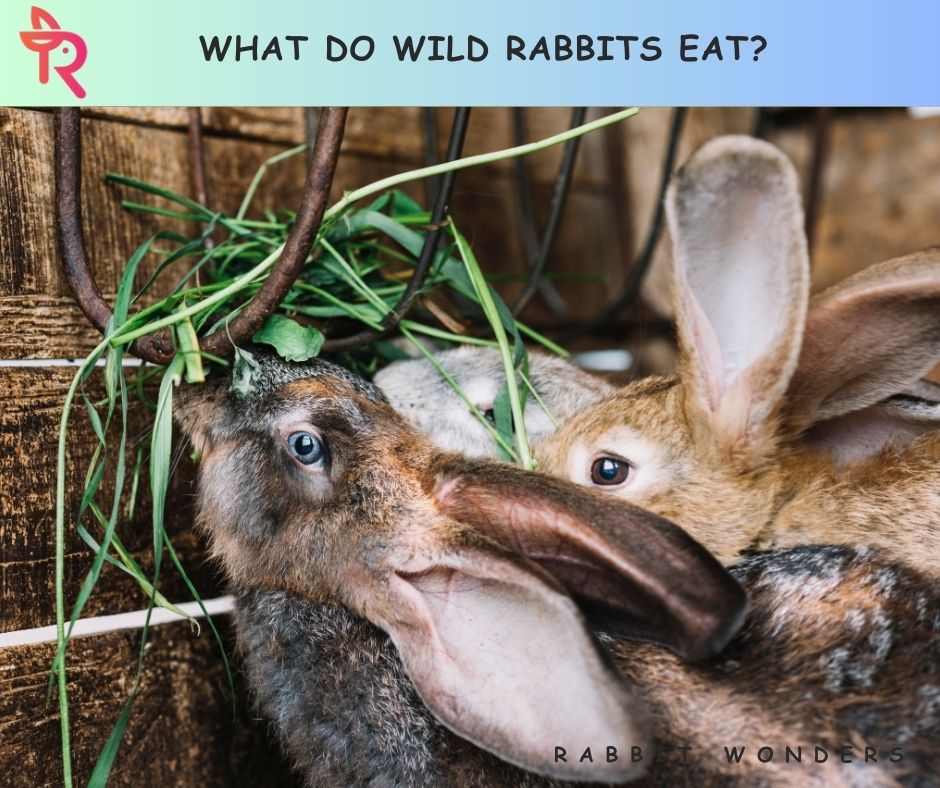Ever wondered what wild rabbits eat to stay healthy in their natural habitat? Wild rabbits, often found in meadows and woodlands, have a distinctive diet that plays a crucial role in their survival. It’s necessary to know what do wild rabbits eat. Explore the fascinating world of wild rabbit nutrition, where their diet plays a crucial role in their survival in the vast wilderness.
Let’s find out what is in the wild rabbit diet and what is not.
What do wild rabbits eat in the winter?
Finding wild rabbit food during the colder months can be difficult. Providing supplemental nutrition can help them survive the winter easily. Here is what can you feed wild rabbits
- Leafy Greens: You can offer pesticide-free leafy greens, wild rabbit favorite food, in moderation. Kale, collard greens, and romaine lettuce are good options.
- Hay: Grass hay like timothy or meadow hay is essential. It provides not only nutrition but also helps rabbits maintain their digestive health. Hay also provides insulation in their nests.
- Winter Veg: A small amount of Winter vegetables like broccoli, Brussels sprouts, and carrots can be given. These provide extra nutrients.
- Fruits: Pears or apple slices can provide some energy. Don’t keep fruit intake so high due to their high sugar content.
- Water: Maintain a regular supply of fresh water. You have to check the water source more often to prevent freezing.
- Herbs: Dried herbs like chamomile, mint, and thyme can give rabbits a variety of flavors and nutrients.
What do wild rabbits eat in the Summer?
Wild rabbits have a variety of natural foods available during the warmer months. However, adding a little extra can still be beneficial:
- Grass: Grass is abundant during the summer and is a crucial part of a wild rabbit diet. If you have a lawn free from pesticides, letting them graze can be beneficial.
- Leafy Greens: Similar to winter, you can offer a variety of leafy greens. Wild rabbits can enjoy dandelion greens, clover, and plantain leaves.
- Weeds: Many edible weeds thrive in the summer, including chickweed, clover, and plantain. These are excellent for supplementing the wild rabbit diet.
- Herbs: Herbs like parsley, basil, and cilantro are nutritious and refreshing for bunnies during hot weather.
- Berries: A few berries like strawberries or raspberries can be given occasionally. They provide a natural treat.
Keep in mind supplementary food can help but not overfeed wild rabbits. Their primary diet should come from their natural foraging. Supplemental offerings should mimic their natural food sources as closely as possible. Note that, the best wild rabbit food is free from pesticides or contaminants.
What do pregnant rabbits eat?
Pregnant rabbits require a balanced and nutritious diet to ensure their health and the health of their developing kits. So, what do wild rabbits eat? High-quality grass hay, such as timothy hay, and orchard grass hay, is essential for proper digestion, dental health, and fiber. Fresh vegetables, such as kale, spinach, romaine lettuce, cilantro, parsley, and dandelion greens, should be introduced gradually to avoid digestive upset. Rabbit pellets should be given in moderation, ensuring the right balance of nutrients. Clean, fresh water should be provided to keep the rabbit well-hydrated.
What not to feed rabbits?
Foods to Avoid:
What do wild rabbits eat in their natural habitat serves as a valuable reference for understanding their dietary needs. Certain foods are not suitable for wild rabbits and can cause digestive issues or worse. Avoid these foods:
- Processed Foods: Avoid offering processed foods, as they are not part of a rabbit’s natural diet and can be harmful.
- Fruits: While some fruits can be offered sparingly. They are high in sugars and should not make up a significant part of a wild rabbit diet.
- Bread and Grains: These foods are not the best option for the wild rabbit diet and can lead to digestive problems.
- High-Starch Vegetables: Vegetables like potatoes and carrots are high in starch and their intake should be in very small amounts.
- Nuts and Seeds: While wild rabbits might encounter some seeds in their natural habitat, avoid offering these as they are difficult to digest.
A proper guidelines
What to feed wild rabbits? When providing supplementary food for wild rabbits, remember these guidelines:
- Moderation: Supplement their natural diet, rather than replacing it entirely.
- Freshness: Offer fresh, clean foods to avoid health issues.
- Water: Provide a source of fresh water in a shallow dish to ensure hydration.
What human food can rabbits eat?

Rabbits can enjoy a variety of human foods in moderation. Their primary diet must consist of hay, fresh grass, and rabbit-safe vegetables. When offering human foods, make sure they are fresh, free from pesticides, and given in small quantities. Here is a list of what human food can rabbits eat:
Leafy Greens:
What do wild rabbits eat in green ones? Rabbits can have a range of leafy greens (wild rabbit favorite food), including:
- Romaine lettuce
- Kale
- Spinach
- Arugula
- Bok choy
- Swiss chard
Herbs:
Fresh herbs are a great addition to wild rabbit food:
- Parsley
- Basil
- Cilantro
- Mint
- Dill
What fruit and veg can rabbits eat?
Vegetables:
Some rabbit-safe vegetables include:
- Carrots (with care due to their sugar content)
- Bell peppers (green, red, yellow)
- Broccoli (including leaves and stems)
- Brussels sprouts
- Cucumber
- Zucchini
Fruits (sparingly):
What do wild rabbits eat in fruits? Fruits are high in sugar, so they should be offered sparingly as treats:
- Apples (remove seeds and core)
- Blueberries
- Strawberries
- Raspberries
Occasional Treats:
Some other treats you can offer include:
- Small pieces of banana (high in sugar, so only a small amount)
- Papaya (contains enzymes beneficial for digestion)
- Pineapple (in small amounts due to its sugar content)
Dried Herbs:
Dried herbs like chamomile, rose hips, and calendula can be given occasionally for variety.
Remember that while these foods can be offered, they should not make up a significant portion of a wild rabbit diet. The major portion should consist of hay and fresh grass. Also, always provide new foods slowly to observe how your rabbit’s digestive system reacts. If not sure what do wild rabbits eat?, it is best to consult the one who is knowledgeable about rabbit care. Avoid giving wild rabbit foods that are high in starch, processed, sugary, or high in fat. Because these can lead to health issues such as digestive problems.
Conclusion:
Feeding wild rabbits needs a deep understanding of their natural diet and dietary requirements. By offering suitable food with limits and avoiding harmful ones, you can play a role in supporting the health of these bunnies. Just remember, if you do not understand what do wild rabbits eat? The wild rabbits are best left alone in the wild, where they can find their natural meals as nature intended.

